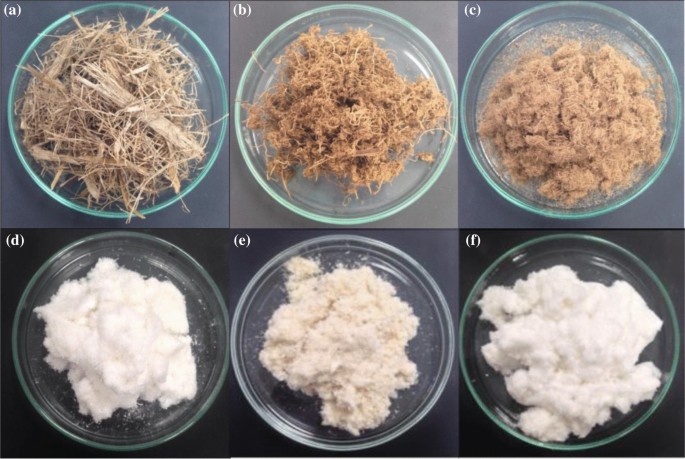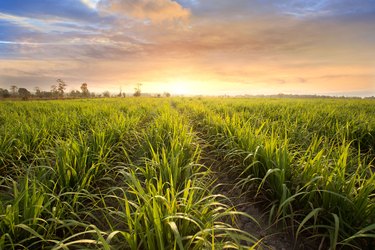Sugarcane Product: A Key Ingredient in Green Materials
Sugarcane Product: A Key Ingredient in Green Materials
Blog Article
Sustainable Sugarcane Products: From Sweeteners to Eco-Friendly Item
The possibility of sustainable sugarcane items expands beyond traditional sweeteners to include a series of environment-friendly items, providing an engaging case for their assimilation into modern-day consumer techniques - sugarcane product. As the globe grapples with pressing ecological issues, sugarcane arises as a versatile resource with the ability of dealing with both dietary demands and sustainability objectives. This discussion will discover how advancements in sugarcane farming and processing can bring about substantial improvements in biodegradable product packaging and eco-conscious fabrics. What ramifications might these growths have for future customer choices and environmental impact?
Introduction of Sugarcane Sustainability
As the need for eco-friendly items grows, recognizing sugarcane sustainability ends up being progressively crucial. Sugarcane, a functional crop, is cultivated mostly in subtropical and exotic regions, and its sustainability is vital for both environmental health and wellness and economic feasibility. Lasting sugarcane farming techniques concentrate on reducing ecological impact while making best use of performance and productivity.
Key facets of sugarcane sustainability consist of reliable land usage, lowered chemical input, and boosted water monitoring. Practices such as crop rotation, incorporated parasite management, and natural fertilizing add to dirt wellness and biodiversity. Furthermore, cutting-edge modern technologies, such as accuracy agriculture, assistance optimize source usage and lower waste.
Additionally, sugarcane is a renewable energy, with byproducts that can be utilized in numerous markets, from biofuels to naturally degradable plastics, therefore minimizing dependence on nonrenewable fuel sources and lessening carbon impacts. Qualifications like the Bonsucro basic encourage sustainable methods across the supply chain, promoting openness and liability.

Sugarcane-Based Sweeteners
Using sugarcane as a primary source, sugarcane-based sweeteners have actually obtained prestige as natural alternatives to synthetic sugar and refined sugars (sugarcane product). These sugar, stemmed from the extraction and handling of sugarcane juice, supply an array of items that provide to varied customer choices, consisting of natural and minimally processed choices
Among the most significant sugarcane-based sugar are raw walking stick sugar, panela, and molasses. Raw cane sugar maintains even more of the all-natural flavors and nutrients found in sugarcane, making it a popular choice for health-conscious customers. Panela, a traditional Latin American sweetener, is created by vaporizing sugarcane juice, protecting its all-natural minerals and vitamins. Molasses, a result of sugar removal, is rich in antioxidants and necessary nutrients, functioning as a nutritious sweetening representative in different culinary applications.
The expanding need for sugarcane-based sweeteners is driven by increasing awareness of health and sustainability problems related to traditional sugar. By selecting sugarcane-derived items, consumers not only sustain sustainable agricultural techniques yet additionally add to a much healthier way of living, straightening their dietary selections with their environmental values.
Naturally Degradable Packaging Solutions
Arising as a feasible choice to standard plastics, biodegradable product packaging solutions obtained from sugarcane are changing the product packaging industry. These cutting-edge products supply an environmentally pleasant alternative that resolves the expanding concerns over plastic pollution. Making use of the natural sugars discovered in sugarcane, manufacturers are developing various forms of eco-friendly product packaging, including movies, containers, and covers that decompose a lot more rapidly than standard plastics.
The primary benefits of sugarcane-based product packaging hinge on its sustainable sourcing and its capacity to break down right into non-toxic results. Unlike fossil fuel-derived plastics, which can linger in the setting for centuries, sugarcane product packaging generally decays within a couple of months under correct conditions. This decrease in waste not only minimizes garbage dump overflow yet likewise reduces the carbon impact connected with product packaging materials.
Additionally, sugarcane-derived product packaging maintains robust efficiency characteristics, providing comparable sturdiness and performance to standard options. As customers and organizations increasingly prioritize sustainability, the fostering of eco-friendly packaging services represents a significant action in the direction of a round economy, where materials are recycled and regenerated as opposed to disposed of. This change not only boosts brand image yet additionally adds to a much more lasting future for the earth.
Eco-Friendly Textiles and Fabrics
Eco-friendly fabrics and textiles are getting traction in the style and home products markets as customers significantly require sustainable choices to standard materials. Amongst the remarkable options are fabrics stemmed from sugarcane, which offer an environmentally accountable choice to artificial fibers. These fabrics are generated via a process that utilizes the renewable energies discovered in sugarcane, significantly reducing dependence on petroleum-based products.

Brand names are progressively integrating environment-friendly fabrics into their product, mirroring a broader dedication to sustainability. This shift is not simply a pattern however an essential evolution in reaction to environmental worries. As the marketplace for lasting fabrics increases, consumers can look ahead to innovative layouts that combine style with environmental duty. Ultimately, environmentally friendly textiles and materials stand for a significant step towards decreasing the garment industry's ecological impact while catering to the expanding demand for accountable customer options.
Innovations in Sustainable Farming
Transforming agricultural techniques, developments in lasting farming are changing the method plants are grown and taken care of. These developments focus on reducing environmental effect while visit the site making best use of efficiency and productivity.

In addition, agroecology, which integrates ecological principles right into farming, promotes biodiversity and soil health and wellness. Practices such webpage as plant turning, cover cropping, and intercropping foster durable ecological communities that can stand up to insects and climate variations - sugarcane product. Furthermore, making use of organic plant foods and biopesticides adds to healthier soils and environments

Together, these developments are not only reshaping the agricultural landscape however also adding to a more sustainable future for sugarcane and various other crops, straightening agricultural exercise with ecological stewardship.
Conclusion
Lasting sugarcane products represent a significant advancement in environmentally friendly alternatives, extending from all-natural sweeteners to eco-friendly goods. The farming of sugarcane with lasting techniques not just boosts environmental health and wellness however also adds to financial feasibility. As customer preferences significantly lean in the direction of sustainable alternatives, the flexibility of sugarcane as a renewable energy ends up being increasingly pertinent. This trajectory highlights the significance of ongoing development and commitment to sustainable techniques within the sugarcane market, fostering a much more sustainable future.
The possibility of lasting sugarcane products prolongs beyond standard sweeteners to include a range of eco-friendly items, presenting an engaging instance for their integration right into modern consumer techniques. Lasting sugarcane farming practices concentrate on decreasing eco-friendly influence while optimizing efficiency and earnings.
Lasting sugarcane items stand my explanation for a considerable innovation in environment-friendly alternatives, extending from natural sweeteners to eco-friendly goods. The cultivation of sugarcane with sustainable methods not only enhances environmental health yet also contributes to economic practicality. As customer choices increasingly lean towards sustainable choices, the adaptability of sugarcane as a renewable resource comes to be significantly pertinent.
Report this page